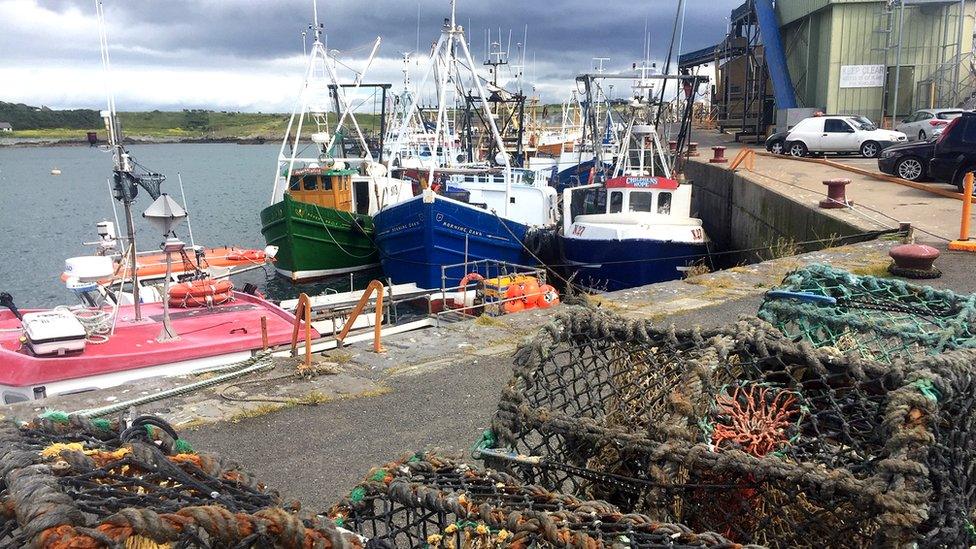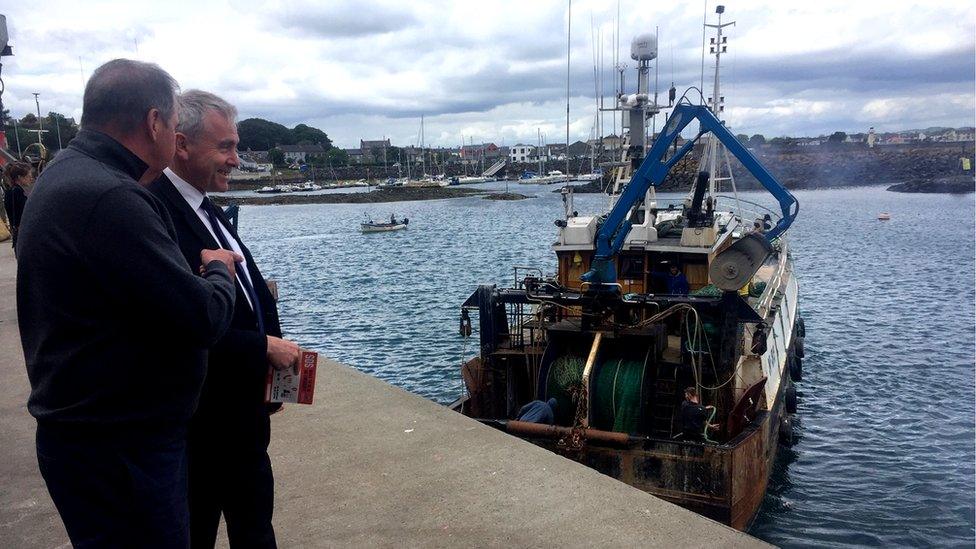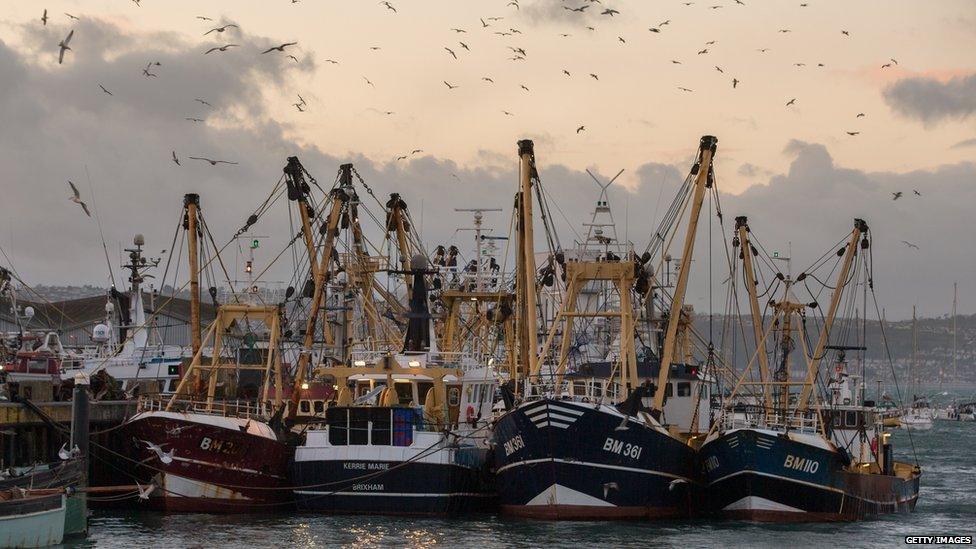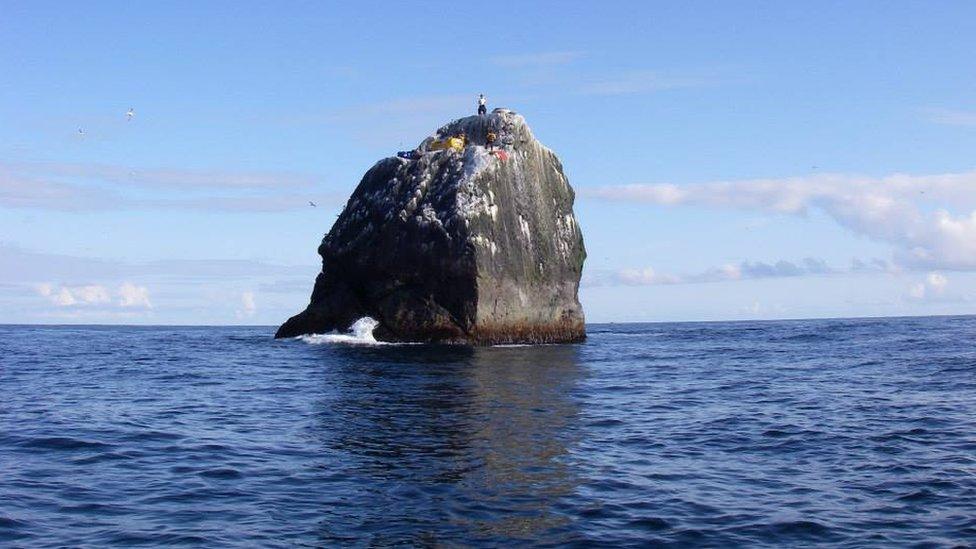Brexit: NI fishing industry 'won't be sold out'
- Published

Much of the Northern Ireland catch ends up in the home market
The UK fisheries minister has said he wants to see an orderly Brexit that works for the Northern Ireland fishing industry.
Robert Goodwill was speaking during a visit to the port of Ardglass in County Down.
Mr Goodwill, a former Remainer, now backs Brexit and voted for Theresa May's Withdrawal Agreement three times.
It provided the UK fishing industry with a transition period until December 2020.
It also provided the chance to address difficult issues with the EU such as market access and reciprocal arrangements on fishing rights.
Mr Goodwill is supporting Jeremy Hunt in the Conservative leadership contest and said he believed as prime minister he could deliver a deal which would end the "uncertainty".
But he said no deal was still on the table and preparations were being made to mitigate the impact.
Home market
He promised that the fishing industry would not be "sold out" as part of a wider negotiation with the EU.
Much of the Northern Ireland catch ends up in the home market, but there are important markets in Europe too.
Mr Goodwill said it was important that these were retained and any disruption caused by Brexit minimised.

Mr Goodwill (right) is the MP for Scarborough and Whitby
In the event of a no deal there would be additional paperwork and checks on imports and exports to the EU, which critics say could slow up the progress of a perishable product along the supply chain.
Meanwhile, it has emerged that Scottish fishing interests are snapping up transferable Northern Ireland boat licences by offering skippers twice the going rate for them.
In 2108, 17 licences were sold in this way from the 145-strong fleet represented by the Northern Ireland Fish Producers' Organisation (Nifpo), with some changing hands for up to £250,000.
Scottish companies, which see expansion potential once the UK gets a greater share of the fish in domestic waters, need more boats to catch them and each boat must have its own licence.
Nifpo chief executive Harry Wick said the loss of catch capacity could mean tens of millions of pounds to the wider Northern Ireland economy.
He said he understood it was an attractive option for owners nearing the end of their careers, but the rising costs could potentially shut younger local entrants out of the industry.
Mr Wick said he would be lobbying Mr Goodwill for a change in legislation which would see cheaper non-transferable licences brought in alongside, which could help address the issue.
- Published20 December 2018

- Published15 June 2019
